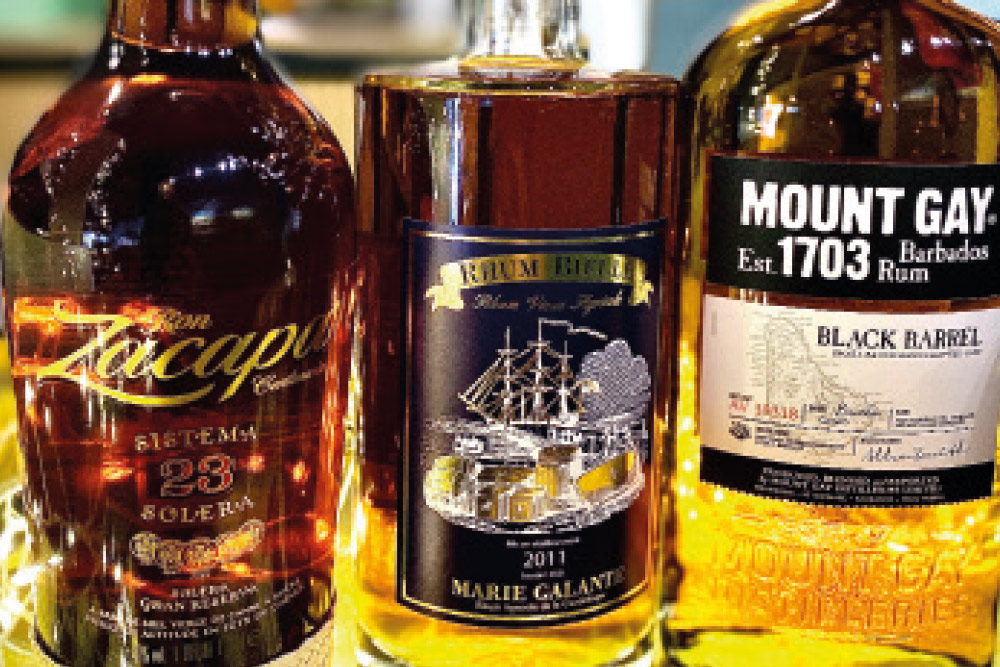
Rhum, rum, ron… where do these names come from? Victoria Payen, our specialist in Caribbean delicacies, looks back on the genesis of a flagship drink from the Greater and Lesser Antilles.
In the 17th century, a curious superstition reigned in the West Indies: rum was attributed the power to drive out demons! In reference to this belief, rum was then called « kill-devil ». Initially, rum was produced mainly on the English island of Barbados; it was a terrifying drink, with an uncontrolled degree of alcohol, thick and blurry, which only slaves, the poor and sailors dared to drink. Little by little, a new name was born for this alcoholic drink: « guildine », a Creole derivative of « kill-devil ». In the French islands, rum was called « tafia», a name given by slaves, probably of African origin. It was said of slaves that « they are very fond of brandy, which they called ‘brusle-ventre’ (burn stomach). »
Rum was only in its infancy and already had three different names… but it inebriated and little by little, beyond driving out the demon and burning the stomach, it provoked fights and gradually took the name of «rumbullion» or «rumbustion» which means «fight» in an English dialect. It would finally seem that in the 18th century «rumbullion» was abbreviated to « rum » in the English islands.
Some say that the name «rum» could also come from the abbreviation of saccharum, the scholarly name for sugar cane in Latin. But let it be said, this explanation is much less entertaining. However, it became « rhum » in French without anyone really knowing when this « h » appeared, so uncommon in the French language. A real mystery…
We can nevertheless suspect that it was a question of standing out from the hereditary rival, England. Spaniards turned «rhum» into « ron ».
Nowadays, only the terms « rhum », « rum » and « ron» remain: « Rhum » designates sugar cane eau de vie of French origin (Martinique, Guadeloupe and Marie-Galante in particular). « Rum » designates sugar cane eau de vie of English origin (Barbados or Jamaica for example). Finally, « ron » designates those of Hispanic origin (Puerto-Rico, Cuba or even Santo Domingo). Take a good look at your bottles, you will have some clue as to the origin of your beverage depending on how rum is spelled. However, « ron » is sometimes written « rum », no doubt for marketing reasons. So check the origin on the labels anyway: for example, the « flor de caña » is produced in Nicaragua but on the bottles sold in France it says « rum » and not « ron »…
* The abuse of alcohol can harm your health, consume in moderation.
Auteur : Victoria Payen

Find Victoria Payen’s blog on:
www.lacasestbarth.com

